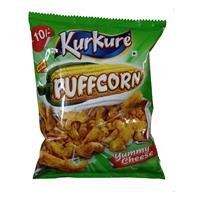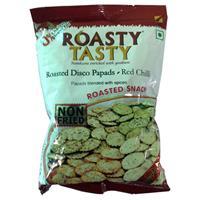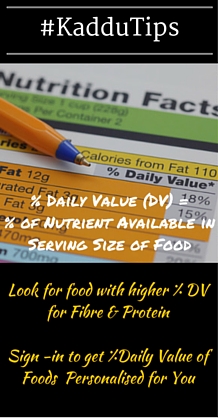
Kurkure PUFFCORN Yummy Cheese
Products in ‘Crispies & Namkeen’ category range from 0.5 - 4


- Food Sensitivity Alert for MSGMonosodium glutamate (MSG) is the sodium salt of the common amino acid i.e. Glutamic acid, popular for its usage as flavouring agent in Asian Cooking.This glutamate salt is also found naturally in various foods such as tomatoes and cheese as well as ingredients such as hydrolyzed vegetable protein, hydrolysed groundnut protein, autolyzed yeast, hydrolyzed yeast, yeast extract, soy extracts, and protein isolate.Some people are sensitive to MSG having adverse effects such as headache, depression, etc. on regular consumption of this salt. Indian law requires that foods containing Added MSG list it in the ingredient panel on the packaging with the warning that it should not be consumed by infants below 12 months. However, if ingredients that have naturally occurring MSG, are added to the product then the product may not specify in regards to its presence.Pregnant & Lactating women & Infants should avoid Products containing MSG .
- Know your Food - Cheese
Feel less guilty with more cheese on your plate, as its not only Fat that you get but also benefit from the tons of other nutrients it contains.
The nutrients found in cheese include calcium, protein, phosphorus due to milk.
Almost all cheeses contain high amounts of saturated fats & salt. Salt, which is needed to finish the transformation of liquid milk into enjoyable cheese, also acts as a natural preservative. If you are hypertensive, then limit the consumption of cheese.
At the end, the amount of fat found within cheese varies depending upon the type of milk being used for cheese processing.
- Know your Food - Flavouring SubstancesFlavouring Substances are added to Food products either to regain the flavour it would have lost during processing e.g. juices or to add a new desired flavour e.g. in case of biscuits, vanilla flavour may be added to otherwise food product without any flavour.Based on the resemblance of the flavouring substance to its natural occurrence, it is classified as natural, nature identical or artificial flavouring substance. Read this blog to find more about different flavouring substances.
- Know your Food- Sugar and its AliasesSome Food Products mask the amount of Added Sugar by using multiple forms of sugar and avoid displaying Sugar as one of the first ingredient. All Ingredient list are in descending order by their weight, so the position of sugar and its aliases can give an indication of the amount of 'Added Sugar'.Though the Nutrition Fact label on the food product gives you the Total Sugar, the regulation does not require the break up between natural and added sugar to be given. Thus, it is important to know the different sources of sugar that may be present in a food product to get an idea of added sugar.At the same time it is important to understand that the body does not distinguish between natural and added sugar, so take note of the Total Sugar in the Nutritional Fact label.Read more about the many different sources of sugar which includes Dextrose, Invert Syrup, Maltodextrin, Honey...
- Loaded with FATEnergy available from a food is based on Carbohydrate, Fat and Protein present in it. The ideal ratio of energy obtained from these components is 65% from Carbohydrates, 20% from Fat and 15% from protein.More than 30% of energy available in this product is from FAT, which is 50% more than the ideal amount. Foods with High Fat are often loaded with Saturated Fat and Trans Fat both of which contribute to life style diseases including diabetes, obesity or Cardiovascular.Again, one should not go on the other extreme of having low fat diet as some amount of fat is required for various bodily functions like storing of energy, absorption of fat soluble vitamins such Vitamin A, D, E and K, insulate us and protect vital organs besides synthesis of specific hormones and cell membrane formation.Thus, it is important to eat food which has each nutrient in the right quantity and limit food products that give too much of one nutrient.
Disclaimer:Product Analysis is based on general practices in the field of Nutrition. Please check with or consult a qualified and licensed medical professional for its suitability to you.













